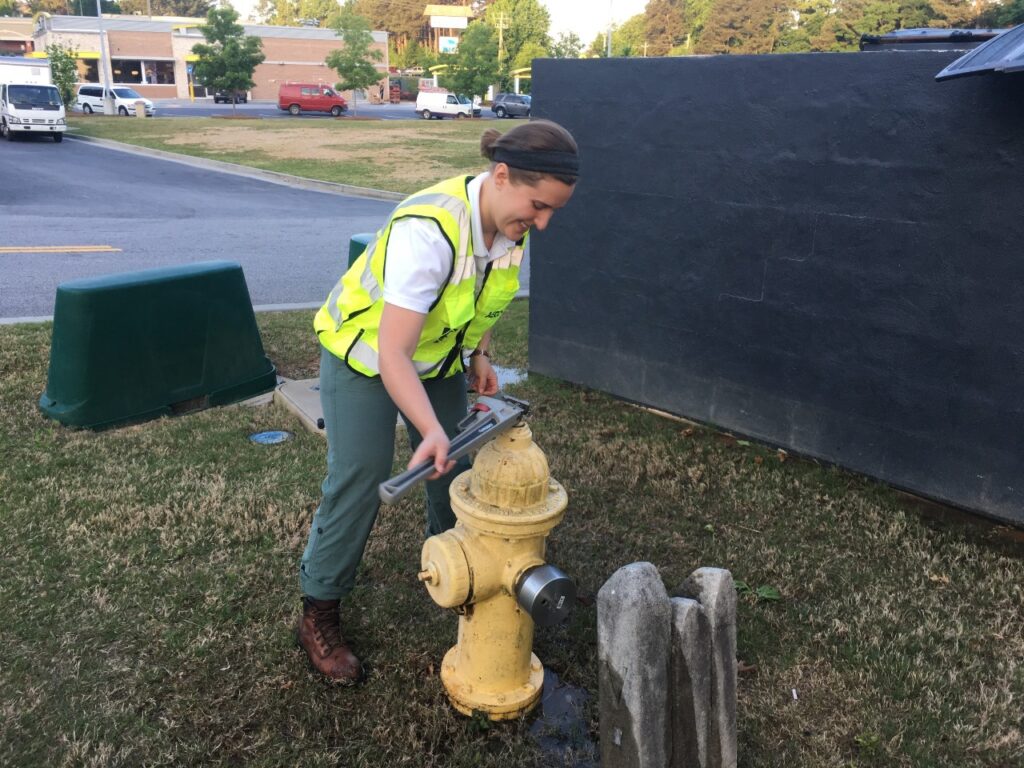People Spotlight: Meet Alicia Pajares
Our People Spotlight series gives you an inside look at our technical experts around the world. This week, we are highlighting a project manager from our Water business in the U.S. West region and providing an insight into their inspiration and work.
Alicia is a water resources project manager based in Seattle, Washington and is leading water resources business development for the Pacific Northwest.
As a water resources engineer, Alicia is currently managing projects owned by the Natural Resources Conservation Service (NRCS). This involves preliminary studies to evaluate if projects—ranging from small agricultural water management schemes to new reservoirs—can move forward for the PL-566 Small Watershed Program that assists local organizations in constructing projects for watershed protection and flood prevention.
Tell us about what inspired you to join the industry.
While studying environmental engineering at the University of Central Florida, I worked at the university’s stormwater management academy laboratory. In this undergrad role, I supported research into permeable pavers, the impact of fertilizer on soil runoff, green roofs, and construction site best management practices.
My graduate research evaluated polyacrylamide blocks and collection mat materials aiding in turbidity removal on construction sites. Polyacrylamide (PAM) is a water-soluble block that is used to flocculate clays and silts to enhance sediment removal in stormwater. The collection mats can capture the flocculated sediment to prevent it from entering nearby waterbodies. During my studies I enjoyed running water quality tests and experimenting with stimulated rainwater. These experiences made me fall in love with environmental conservation and helping communities manage water quality and quantity.
After university, I worked for the City of Kissimmee, Florida, as the stormwater engineering manager for about a year where we did everything from water quality sampling to small drainage projects. I also led the FEMA Community Rating System—a voluntary program that encourages and rewards communities who develop public information, mapping and regulations, flood damage reduction, and warning and response programs by lowering flood insurance premiums. While I truly enjoyed my role, I wanted to get into consulting to experience more varied projects in different locations.
What is your favorite AECOM project that you’ve worked on and why?
My favorite project is the Environmental Impact Assessment for Glades Reservoir in Georgia. This was my first exposure, as a project engineer, to the environmental awareness side of engineering and it opened my eyes to the detailed environmental checks and balances required to construct something of this scale.
This project exposed me to water supply planning, alternative analysis, public/stakeholder involvement, and coordinating with outside agencies. I also learned that it’s possible to find a mix between being an engineer, building new infrastructure while also being a steward for the environment.
Tell us a story of how your work positively impacted the community.
I completed a stormwater master plan in the City of Decatur, Georgia. At the time, the community was dealing with a lot of flooding that damaged homes and livelihoods. The master plan entailed:
- Modelling the entire system
- Evaluating flooding locations at different design storms
- Multiple public involvement meetings with the community
- Developing a prioritization plan and a benefit-cost ratio which led to a final capital improvement plan for the city
We held outreach events to speak directly to the community and understand their concerns. This community engagement enabled us to build an accurate model of the flood locations. Further, we educated the residents on how to develop stormwater retention basins and rain gardens on their property to limit the impacts of heavy rains.
Share a piece of career advice.
Finding a reason to do your work is so important. You can find that at AECOM because we’re involved in so many interesting and impactful projects across the globe. You can move across countries and states or stay local and still get exposure to projects that are not only best in the world, but best for the world.







